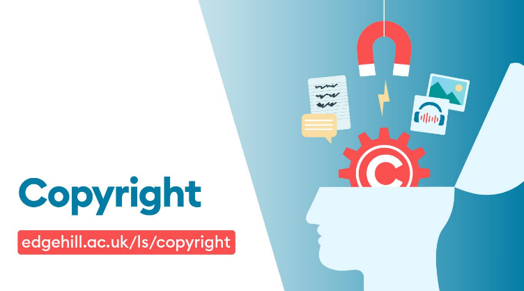Why is copyright so important?
Put simply, copyright helps to protect the value of an original work and performs an essential role in enabling authors and creators to control their intellectual property and to earn a living from it. Furthermore, it encourages and promotes knowledge creation and innovation through the wider sharing of works. Yet copyright is frequently badged as complex and legalistic, and in an academic context where copyright may be closely linked with policy and funder mandates, it may even be perceived as a barrier to effective research and knowledge exchange. Fundamentally, copyright is about balancing the rights of the author with the broader rights of society to use creative works in certain ways without needing to seek special permission. When used in the right way it can be an incredibly powerful tool!
Copyright pervades all aspects of education and academia and is pertinent in wide range of scenarios.
Examples of copyright include:
- Uploading an article or book chapter to the Virtual Learning Environment (Blackboard)
- Streaming a film to students in a classroom
- Publishing a research paper
- Reusing images in a monograph publication
Knowledge of copyright is essential for all these tasks, yet the world of copyright can be bewildering and determining what is and is not permissible under copyright law akin to entering a minefield. Copyright has become especially important in the digital space and the internet age which has increased the rapidity and convenience with which information can be shared. On the other hand, it is also now easier for creative works to be shared inappropriately or in ways that contravene copyright.
In scholarly communications, the move towards Open Access means that more and more of the research that academic institutions publish can be made freely available and the introduction of Creative Commons licensing has provided scholars with a means of sharing their work and removed the burden on those wanting to reuse works from having to contact rights-holders. These positive developments around Open Access and open licensing have undoubtedly facilitated better sharing and discovery of creative works, but it can be challenging making sense of different licences and understanding what copyright means for you as a student, researcher or member of staff.
Further help and support
Thankfully, there is a wealth of information and support available. In Library and Learning Services we provide web pages with tailored information about copyright in an academic context and for those that would like to learn more we recommend checking out CopyrightUser.org, an online resource aimed at making UK copyright law more accessible. For those that need to know more about open licensing the Creative Commons pages are especially useful.
And for any copyright query, big or small, the Library offers a dedicated email account where you can seek advice on your copyright queries and questions, which you can locate on our webpage.

